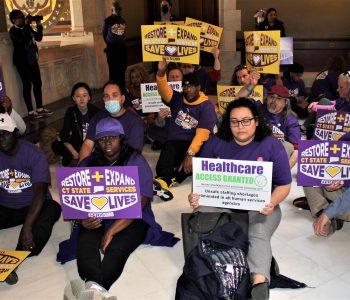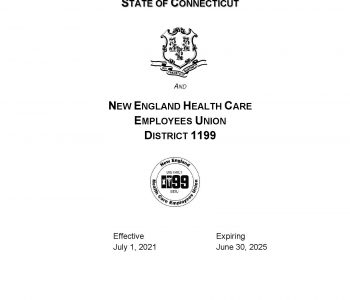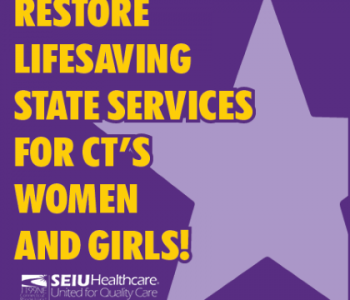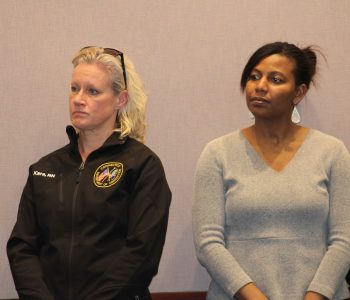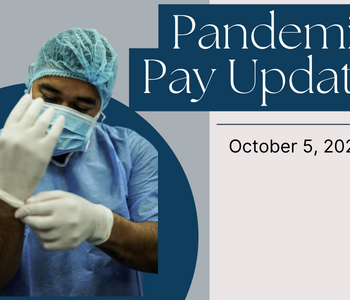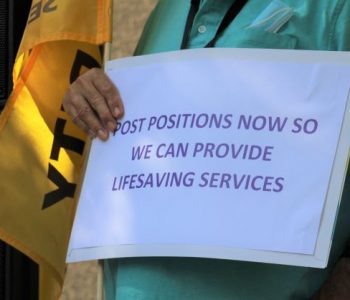State residents may feel confined by social and work restrictions brought on by COVID-19, but for prisoners and workers in Connecticut’s jails the luxury of self-isolating at home doesn’t exist.
The idea of “loosening up” and finding the “new normal” in our prisons is a long way off. We’re still “popping positives” for COVID-19 while living and working in conditions that seem designed to spread the virus.
We must do better.
Our prisons are petri dishes.
At Osborn Correctional Institution, where I work as a licensed practical nurse, the onslaught of COVID-19 has killed six of our prisoners and infected more than 250. It’s no wonder considering that most of our more than 1,000 prisoners live in cells with bars or in dormitory-style rooms with bunk beds. In one case, 50 men share the use of a single shower stall. With few physical barriers the virus has little to stop it from spreading through the prisoners and staff despite the efforts we make to wear our limited protective gear, test and move infected people away from the general population.
During the past few months, I was compelled to take three extra shifts a week to make up for staff shortages that pre-date the extraordinary demands put on by this highly contagious virus. Working so many 16-hour days checking prisoners’ vital signs and administering swab test is exhausting, especially with the added tension of being exposed to patients who test positive for COVID-19.
It’s changed my home life too. Relatives are caring for my immediate family members to ensure I don’t infect them with the virus. Before heading home each day, I go to a hotel to shower and change clothes.
For prisoners, however, there is no end of the day when they can go home. They have grown frustrated by the lack of communication about testing and the transfer of prisoners with COVID-19 within Osborn and to Northern Correctional Institution for treatment. They are concerned that staff, with the ability to come and go, might bring the virus to them.
I work with these men daily. We’re in here together trying to treat each other with respect. Prejudices and stereotypes associated with our incarcerated population make it easy to dismiss them from our society. Prisoners, however, are the sons, brothers, fathers, husbands and neighbors of state residents and most expect one day to rejoin the community.
My patients include men who struggle with addiction, innocent men who cannot afford bail, men with severe medical or mental illness, and men with severely decreased mental capacity. And some are violent criminals.
Yes, there are men here who should spend every moment of their sentence inside these walls. But there are also men who have been rehabilitated, who work everyday side by side with staff. There are men who have completed their minimal sentencing, yet are overlooked and must sit here until their end of sentence date, many because they struggle to communicate effectively. Others are approved for halfway houses yet have safe and supported homes they can go to. Some have parole approved, but there is no assigned parole officer, so they cannot be released. This is not right under normal conditions but with the threat of COVID-19 swirling around their cells it’s even more unjust. As a society we have unfairly allowed prison to be the repository for these men.
At corrections, we were desperately understaffed and under-equipped long before this pandemic, which is magnifying the dangerous shortcomings in our system. By late May, 375 staff members in the state’s prisons had tested positive for COVID-19.
COVID-19 continues to spread inside our facilities at this very moment. It is an absolute certainty that it will and has spread like wildfire. We need to deliver more resources to our prisons, improve the ability to protect prisoners and staff from the spread of the virus and make sure planning and procedures don’t leave us playing catch-up now or in the future.
Tomorrow will be too late. We cannot sacrifice the safety and lives of frontline staff and the incarcerated. Our lives are not expendable.
Written by Gabby Bottino, an 1199 member

